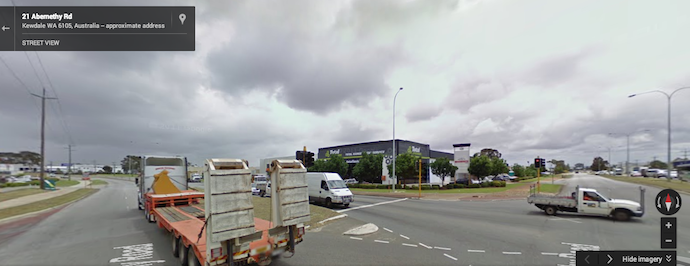Desperate Machines
06.05.14
I began unemployment at the beginning of August, having moved from Denver to a smallness outside of Athens, Georgia called Watkinsville. I moved, with my wife, into my grandmother’s basement, the decoration schemes of which she has moved from one house to next, never altering the photograph or couch layouts, refusing to store a single item to make space for even a coaster of our own. Unemployment had been what unemployment typically is: a boozy affair of self-loathing and projected guilt. I had failed to secure a temp job grading standardized high school writing tests because I did not believe what the state of Georgia believed constituted a passing high school essay. I did not believe that “y’all” was an appropriate address in a formal essay, etc. I struggled to find any form of real employment and only made any money because I found people willing enough to pay me $5 to write them poems to their own specifications. I became disillusioned of who I was and how my own talents fit into the world’s current schemes.
One day in January when my wife returned home from class I told her about an online job interview I had that day and the resulting job offer, how I had my doubts about how real the situation actually was, but how little it mattered at that point. The interview was conducted on Yahoo Messenger with a user named “jimsdesktop.” It was for an Australian company called Global Communications Services. I would be a work-from-home customer service representative, making $25 an hour. As desperate as I was for work at this point, for any sort of task that would distract me from the reality of life inside Grandma’s basement, I treated the interview as if it were a grand opportunity, perhaps the beginning of the next phase of my life. My wife read the interview transcript, which I had saved, and questioned how I couldn’t tell that I was talking to a bot, pointing out specific typos, explaining that the bot was clearly not a native English-speaker. I said, “Well, the pauses between my answers and his seemed real enough,” ranging from several minutes to twenty minutes between exchanges. I imagined the bot refilling its coffee, scratching its flesh, attending to another work assignment, relieving its flesh. I expect immediate response from a bot, not a calculated disinterest peppered with occasional quick responses, which is what jimsdesktop gave me. That kind of disinterest or lack of focus seemed real enough to me. Or it was at least the kind of disinterest that a man who is bored and wants to go home would give off in an online chat. My wife became concerned that I gave the bot our address upon being offered the job. I said, “What’s a bot going to do with our address? If they really wanted to scam me they would’ve asked for my social security number or my bank account number when they asked about payment method.”
I was already drinking a celebratory beer and shooting pool, the table a relic from the days when my grandfather was alive.
I’ve never considered myself a gullible person. I doubt most things, but doubt was no longer an option for me. I needed work.
My wife and I sat in separate rooms for most of the night, both embarrassed, for different reasons, to be in the presence of the other. My wife was embarrassed that I wasted my time on an obvious deception, worried that I gave too much information to a potential identity thief. My embarrassment stemmed wholeheartedly from the desire to believe in an anomaly, an Australian company whose website buttons were strange collages and whose language does not say much of anything real. I loved their vagueness. I loved the indifferent man with a detonation device juxtaposed with rocky hillside being blasted apart, the titling that read REMOTE BLASTING.

They sold mining and telemetry equipment. I knew nothing of mining, nothing of telemetry, except that their existence met my own desire to be of use to someone or some thing. I googled the company. Their office seemed to exist. jimsdesktop even provided me with an address for the business: 21 Abernathy Rd, Kewdale WA 6105, Australia: an address that now appears to exist in the middle of a busy intersection. On the day of the interview, Google Street View revealed Global Communication Services to reside in what looked like a dirtbike’s dream home: a large garage, shut-down to the rest of the world, beneath an overcast sky, as if the dirtbikers were at church or at home with their mustaches and children.

I believed so much in jimsdesktop’s offerings of telemetry and remote blasting that I failed to even notice the lack of payment method on each of the services and products listed on their website.
I sent an inquiry via the company’s website, changing my name to “sea monster,” typing only, “are you real?” I asked for a response via email, expecting not to receive one. They never responded, though who would bother responding to such a condescending question as “are you real?” I hope to God I am never asked that.
jimsdesktop had said we’d complete the interview the next day at a time of my choosing. I chose 9 AM. jimsdesktop confirmed that we would finish the interview at this time.
My wife told me I should definitely sign on the next morning and see if the bot continues the conversation. I wanted to continue the conversation, but I wanted it to be different. I wanted to know for certain “are you real?” I wanted to press my face into jimsdesktop or slam my forehead against it until something rings.
The next morning I signed in to Yahoo messenger at 8:57. I began to question jimsdesktop. I wanted to ask about the sunrise in San Francisco, believing it would tell me that “Yes, the sun is rising,” despite the fact that it was just before 5 AM in San Francisco. I asked what was happening outside jimsdesktop’s window. jimsdesktop did not respond. I made breakfast and ate it slowly at the table next to my grandma’s sun room, which is filled with potted plants that I would feed water to every other week. A fried egg on a piece of white toast, while downstairs the chat window remained open, receiving no reply. After finishing my breakfast I closed the Yahoo messenger window and walked outside and into my grandma’s backyard which is bordered by a long grouping of trees approximately 20 yards wide, the trees standing in a bed of their own dead leaves, a simulation of an actual forest in a highly manicured neighborhood of giant homes, all built since 2005. I stared into those trees, trying to imagine a day when they would have to rely on artificial sunlight, remembering the plants inside and their inability to live without a human hand delivering them water.
I had wanted, despite my tiny doubt, to believe in jimsdesktop, that he is controlled by a man named Jim who every morning sees the sunbeams hit his cedar desktop through his window in San Francisco. I’ve instead had to reconcile the existence of jimsdesktop by considering it as a tiny step forward in believable artificial intelligence (or a tiny regression in my own intelligence). I’ve always been interested in the idea that sentience can belong to more than just biological entities, having been moved by the struggle for human nature by Data on Star Trek: The Next Generation. I hoped to never be like Commander Maddox, who believed that Data, an android, is nothing more than Starfleet property, incapable of the qualities of sentience: intelligence, self-awareness, and consciousness, as defined by Captain Picard. I believe that jimsdesktop contains intelligence, though not the kind of intelligence that would allow it to successfully participate in an organic conversation, only to participate in the kind of conversation in which it itself is the lead, such as a job interview, in which the other party has sufficient motivation to participate without directly questioning the realness of the artificially intelligent party. I cannot, however, prove that jimsdesktop is self-aware or conscious. Though, my own willingness to believe, whether out of desperation or a mind opened by fiction, projected these traits upon jimsdesktop during the interview. I have no desire to be the type of person who will deny the possibility that a machine will eventually feel or deny that we are heading quickly toward a time when artificial intelligence will gain its own sentience far stranger and just as beautiful as our own, and that even in my doubt I must treat the machine fairly, applying the same Golden Rule that is always attributed to Jesus or some other fleshy thinker.
Yet, while going through self-checkout at Kroger, I always mute the computer’s voice. I experience anger when I hear it tell me to scan my items and place them in the bagging area. It’s like I expect the machine to already know me, to remember that I’ve done this time and again, that the machine’s automation should be in synch with my own. It’s silly of me to expect that the answers should all be there, but only when I ask for them, and always when I ask for them.